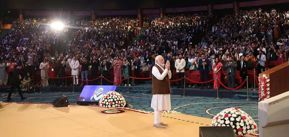New Delhi, December 7
The Supreme Court today said the law does not sanction the concept of a woman’s religion getting merged with her husband’s faith after an inter-religion marriage.
A five-judge Constitution Bench headed by Chief Justice Dipak Misra was dealing a legal question whether a Parsi woman loses her religious identity if she marries a man from a different religion.
The Bench, also comprising Justices AK Sikri, AM Khanwilkar, DY Chandrachud and Ashok Bhushan, asked senior advocate Gopal Subramanium, representing the ‘Valsad Parsi Trust’, to seek instruction (from the trust) and apprise it on December 14 as to whether it can allow Goolrokh M Gupta, a Parsi woman who had married a Hindu, to attend the last rites of her parents.
Gupta has challenged the customary law, upheld by the Gujarat High Court in 2010, that a Parsi woman marrying a Hindu loses her religious rights in the Parsi community and hence, loses the right to visit the ‘Tower of Silence’ in the event of her father’s death to perform the last rites.
“There is no law which says that a woman loses religious identity after marrying a man from another faith... Moreover, the Special Marriage Act is there and allows that two persons can marry and maintain their respective religious identities,” the Bench said.
Senior advocate Indira Jaising, appearing for the woman, referred to the Common Law doctrine of merger of religion which says that the religion of a woman gets automatically merged with the faith of the husband after marriage.
“Can we adopt the Common Law doctrine of merger of religion in India when it has not been followed in the country of its origin,” Jaising said, adding that the constitutional validity of the Common Law principle would also be required to be tested.
“A man marries outside the community and is permitted to retain his religious identity and a woman is not allowed to marry outside and retain her religious identity. How can a woman be debarred...,” the Bench said.
Jaising said even if it was presumed that the doctrine of merger had the customary sanction, the customs will have to pass the test of constitutionality and no custom can be allowed to infringe the fundamental rights of a person.
The Bench said it was only the woman who can decide about her religious identity by exercising her right to choice.
The Bench was hearing a plea filed by Gupta challenging the HC judgment holding that a Parsi woman is deemed to have converted to Hinduism after she marries a Hindu man. — PTI



























